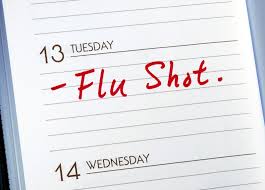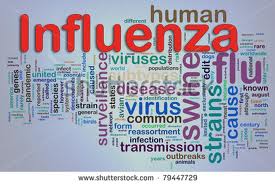 Despite the recent Advisory below, it is still important to get vaccinated against Influenza this year. We offer the Quadrivalent Influenza vaccine which protects against 4 Influenza viruses including partial protection against the H3N2 virus.
Despite the recent Advisory below, it is still important to get vaccinated against Influenza this year. We offer the Quadrivalent Influenza vaccine which protects against 4 Influenza viruses including partial protection against the H3N2 virus.
Influenza activity is currently low in the United States as a whole, but is increasing in some parts of the country. This season, influenza A (H3N2) viruses have been reported most frequently and have been detected in almost all states.
During past seasons when influenza A (H3N2) viruses have predominated, higher overall and age-specific hospitalization rates and more mortality have been observed, especially among older people, very young children, and persons with certain chronic medical conditions compared with seasons during which influenza A (H1N1) or influenza B viruses have predominated.
Influenza viral characterization data indicates that 48% of the influenza A (H3N2) viruses collected and analyzed in the United States from October 1 through November 22, 2014 were antigenically “like” the 2014–2015 influenza A (H3N2) vaccine component, but that 52% were antigenically different (drifted) from the H3N2 vaccine virus. In past seasons during which predominant circulating  influenza viruses have been antigenically drifted, decreased vaccine effectiveness has been observed. However, vaccination has been found to provide some protection against drifted viruses. Though reduced, this cross-protection might reduce the likelihood of severe outcomes such as hospitalization and death. In addition, vaccination will offer protection against circulating influenza strains that have not undergone significant antigenic drift from the vaccine viruses (such as influenza A (H1N1) and B viruses).
influenza viruses have been antigenically drifted, decreased vaccine effectiveness has been observed. However, vaccination has been found to provide some protection against drifted viruses. Though reduced, this cross-protection might reduce the likelihood of severe outcomes such as hospitalization and death. In addition, vaccination will offer protection against circulating influenza strains that have not undergone significant antigenic drift from the vaccine viruses (such as influenza A (H1N1) and B viruses).
Because of the detection of these drifted influenza A (H3N2) viruses, this CDC Health Advisory is being issued to re-emphasize the importance of the use of neuraminidase inhibitor antiviral medications when indicated for treatment and prevention of influenza, as an adjunct to vaccination.
The two prescription antiviral medications recommended for treatment or prevention of influenza are oseltamivir (Tamiflu) and zanamivir (Relenza). Evidence from past influenza seasons and the 2009 H1N1 pandemic has shown that treatment with neuraminidase inhibitors has clinical and public health benefit in reducing severe outcomes of influenza and, when indicated, should be initiated as soon as possible after illness onset. Clinical trials and observational data show that early antiviral treatment can:
pandemic has shown that treatment with neuraminidase inhibitors has clinical and public health benefit in reducing severe outcomes of influenza and, when indicated, should be initiated as soon as possible after illness onset. Clinical trials and observational data show that early antiviral treatment can:
- shorten the duration of fever and illness symptoms;
- reduce the risk of complications from influenza (e.g., otitis media in young children and pneumonia requiring antibiotics in adults); and
- reduce the risk of death among hospitalized patients.
Source: CDC
